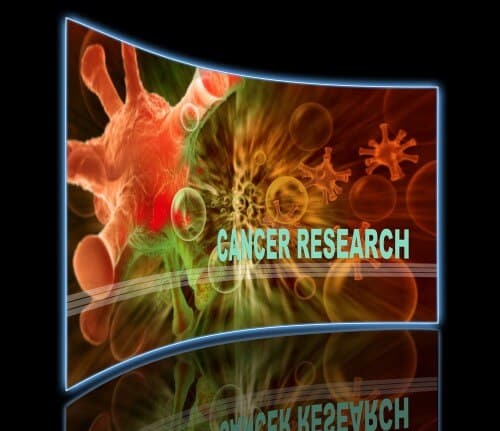Two studies recently published in the journal Ocogene focus on research regarding treatment with a new drug and examining the relationship between colon cancer and melanoma.

Cancer is a very complex disease in which the tumor recruits surrounding tissues as well as the immune system to support and promote its growth. It is this complexity that explains why the treatment of cancerous tumors is a complicated issue in medicine. Therefore, researchers have been focusing in recent years not only on the tumor itself, but also on its environment and its effects on the immune system.
Two studies recently published in the journal Ocogene focus on research regarding treatment with a new drug and examining the relationship between colon cancer and melanoma.
Prof. Alex Levitsky from the Hebrew University, led the research in which the molecule NT157 was tested and its action against metastatic melanoma. In an accompanying article in the same journal, the results of another study conducted by Prof. Levitsky with Prof. Michael Karin from the University of California, San Diego, are published, in which the dramatic therapeutic effects of NT157 in colon cancer of mice are presented.
Cancerous tumors develop and thrive due to the uncontrolled overactivity of proteins that normally work in a timed and controlled manner. The communication network that controls the cancer cell consists of different families of enzymes and different control proteins. Recently, Prof. Alex Levitsky's laboratory, in collaboration with Novotir, which he founded in 2005, developed a family of anti-cancer substances that inhibit the pathway of the insulin-like growth factor.
Substances from this family, such as NT157, have been found to effectively inhibit metastatic melanoma tumors of human origin when transplanted into experimental animals. This family of molecules was developed by Prof. Levitsky's research group from the Alexander Silverman Institute of Life Sciences at the Hebrew University in collaboration with Dr. Hadas Reuvani, CEO of Novotir and currently CEO of Tiranovo, which continues to develop the material.
It turned out that NT157 also inhibits another important pathway in cancer processes, completely different from the one activated by insulin-like growth factor. The other pathway is driven by the Stat3 protein operating inside the cell nucleus. The Stat3 confers resilience on many types of cancer cells not only because it is a driving factor inside the cancer cell, but because it also mobilizes the tissues around the cancer tumor for the "good" of the tumor and turns them into a supportive environment. At the same time, it causes the immune system, which fights cancer, to betray its purpose, replace its skin and help the cancer grow. Therefore, Stat3 has been a focus of interest for cancer researchers, including Prof. Levitsky, for two decades, and for companies looking for anti-cancer drugs.
Prof. Levitsky and doctoral student Efrat Fleshner-Abramson from his laboratory, together with Dr. Reuveni, characterized this fascinating find. Since both pathways - the one activated by the insulin-like growth factor and Stat3 - act not only as a catalyst for the growth of the cancer itself, but also in converting the normal tissues bordering the tumor and the immune system to a "tumor-supporting" environment, the inhibition of both pathways by NT157 has a promising healing potential most. Indeed, Dr. Elsa Sánchez-López, under the guidance of Prof. Michael Karin from the University of California, San Diego, and in collaboration with Professor Levitsky's laboratory, showed that the substance NT157 is highly effective against metastatic colon cancer in a mouse model that faithfully mimics the human disease and which Developed by Prof. Karin. The findings were published in two articles in the journal ONCOGNE along with editorial comments. Today, Professor Levitsky's laboratory continues to develop inhibitors for the Stat3 protein.
Michael Karin is a Harvey Award winner and a member of the American Academy of Sciences.

3 תגובות
The only university in Israel that is between the first 100-200 in the world according to the top 2 indices.
A friend of mine had an average of 55 there and when he transferred to another university whose name we shall not mention, it rose to 80
Go forth and succeed
"...Indeed, Dr. Elsa Sánchez-López, under the direction of Prof. Michael Karin from the University of California in San Diego, and in collaboration with Professor Levitsky's laboratory"
Sentences of this type, which do not contain an iota of information but rather an irrelevant distraction, make it difficult to read and depress the interest in the article. You can give credit in one footnote, maybe two... You can and should also avoid prefixes that are crowning... Instead of a sentence like "Prof. Levitsky and doctoral student Efrat Fleshner-Abramson from his lab, together with Dr. Reuvani characterized the find..." you can be content with "The researchers characterized You". Or by their first names "Dan and Dana characterized..." (In this case you immediately see that the entire sentence is actually redundant.)
With all due respect to these excellent people, they do not need and almost certainly do not wish to be used as a substitute for the traditional glorification of the "Rabbi Gaon Shalita Zatzukal..." type.